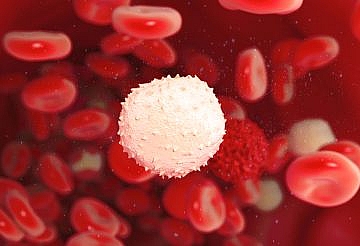Purpose of the immune system
The purpose of the immune system is to defend itself and keep microorganisms, such as certain bacteria, viruses, and fungi, out of the body and to destroy any infectious microorganisms that do invade the body. This occurs primarily through the actions of white blood cells. The body’s immune system can also be a hindrance, in some cases. Some illnesses and allergies are caused by an overactive immune system, targeting the body’s own cells or relatively harmless intruders instead of potential pathogens. Rheumatoid arthritis, for instance, is caused by the immune system targeting joints and causing damage.
Defensive mechanisms of the body
The immune system comprises defensive mechanisms such as mechanical barriers, white blood cells and molecular components, such as cytokines, complement proteins and antibodies. Mechanical barriers, otherwise known as physical barriers, are considered as the most crucial line of defense.
The innate and adaptive immune system
The immune system is composed of two major parts, the (aspecific) innate and (specific) adaptive immune system. Innate immunity mainly consists of phagocytes which destroy non-native cells and organisms, while adaptive immunity (lymphocytes) learns from infections and allows the body to fight repeated infections more easily.
Where are immune cells found?
Immune cells can be found in blood, in specialised lymphoid organs like spleen, lymph nodes, thymus, tonsils and bone marrow and many other organs like the skin and lungs.
Other roles of the immune system
Next to their role in immune surveillance, killing and clearing pathogens, immune cells have an important role in regulating endocrine responses. Psychiatric patients often have inflamed brains: the immune cells are in an aggressive setting and cannot maintain their maintenance mode. They also more often than the general population show autoimmune diseases like thyroid disease. Phagocytic cells like macrophages play an important role in wound healing and tissue formation, while the family of dendritic cells is known for its ability to regulate endocrine responses.
Immunisation
Immunisation uses lymphocytes to increase the body’s defense against illness by training the cells to target weakened or dead infectious cells or antigens (parts of proteins of the infectious agent or danger).
Summary
The immune system, together with other systems, maintains the healthy body homeostasis by preventing invasion of pathogens and deleterious cancer cells and thereby prevents disturbances of bodily functions.









